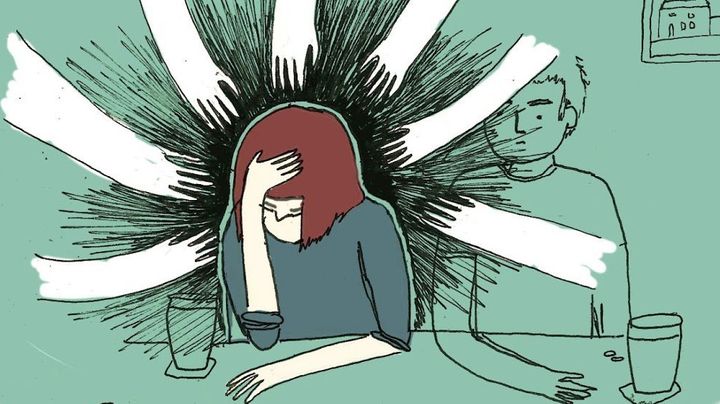Obsessive love is a passionate desire to love and to be close to someone. Most people have felt the intense emotion of infatuation and a broken heart due to a broken relationship. Obsessive infatuation takes these emotions even further, making a person fixate on another person as if they are an item or possession. Obsessive-compulsive disorder often leads to obsession in relationships.
What is obsessive love? Obsessives are extremely emotional but can also be rational. They are obsessed with the desire to get closer to others, the need to know the thoughts, the need to understand and the need to possess others. While some people are able to live their lives without obsessive behaviors, most who suffer from it have very difficult relationships with other people. It is important to remember that obsessive love can be dangerous and may lead to depression, substance abuse or suicidal thoughts. People who suffer from it should seek help from a professional before they hurt themselves or others.
The possessed don't want to lose anyone they love, they just don't like being alone. They will often speak of this obsessive love in romantic terms such as "my sweet prince, my ideal princess." They are ready for anything to be together with their "soul mate", but they do not want to part. the people they love do it. People with compulsive love often have a fear of leaving someone. This fear can cause extreme restlessness and anxiety, leading to a series of compulsions, such as counting to 10, when they start to miss the person.
The good news is that obsessive-compulsive disorder is treatable. The professional may need to work with the patient to learn how to overcome the obsession. In many cases, the patient learns to change his thoughts and actions in order to better control his actions and feelings.
The most common treatment for compulsive love usually involves psychotherapy. Therapy will teach a person to recognize when he is fixated on a person, and not on an object. This will allow the person to get rid of the need to get hung up and accept their loved ones.
Additionally, hypnotherapy is used to treat obsessive-compulsive disorder. Hypnotherapy can help the patient understand what triggers obsessive thoughts so that he or she can learn to respond to them in different ways. They may find it helpful to ask questions such as, “When I feel this way, can I see a pattern?

Successful treatment of obsessive-compulsive disorder may take longer than medication
Medication is often more effective at relieving symptoms for a short period of time. In some cases, people will have to take antidepressants for months or even years to get full results. In some cases, a combination of therapy and medication is required to completely relieve symptoms.
Those who suffer from obsessive-love should try to avoid acting on their obsessions because of the danger involved. If the sufferer feels that someone might hurt them, they should consult their doctor before taking actions that could cause injury. There are treatments that can help people who suffer from obsessive love. by giving them tools to handle their obsessive emotions and learn to deal with the problem without acting on them.
If it is discovered that a patient does in fact harm himself or herself or others, a doctor will evaluate whether the actions are justified and then help determine if it's possible to get rid of the obsession. If so, the patient will be put on medication that will help them control their actions.
People suffering from obsessive love have to learn how to live their lives without the obsessiveness. The obsessive fears that come with the condition can be debilitating and can be difficult to conquer. Psychotherapy and hypnosis can help sufferers to do just that.
Sufferers of OCD love may also be referred to counseling and often times they may learn to cope with their condition without relying on medications or therapy. Sometimes this will not be successful and in that case, other forms of therapy such as psychotherapy and hypnosis may be prescribed. It is important for people suffering from obsessive-love to talk with a qualified professional in order to learn how to control their actions and feelings to ensure that they don't act in ways that could hurt themselves or others.